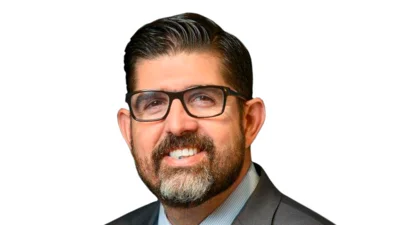University of Florida recently issued the following announcement.
The University of Florida Information Technology Research Computing hosted its Spring 2022 HiPerGator Symposium Thursday. The spring symposium was virtual and showcased
artificial intelligence research conducted on HiPerGator AI by members from UF, Florida International University and the University of South Florida.
The goal of these semi-annual symposiums is to strengthen the communication among the researchers using HiPerGator, sparking collaborative ideas for research and discovery.
This is the first time in the four years of the event that it has featured institutions other than UF.
HiPerGator is one of the most powerful supercomputers in the United States.
Research performed by Eleni Bozia, associate professor of classics and digital humanities in the Department of Classics at UF, focuses on mining Ancient Greek and Latin texts for
descriptive words related to race, gender, religion, immigration status, sexual orientation and other distinguishable characteristics and analyzing each word’s connotation – whether
positive, negative or neutral.
The purpose of this research is to further understand concepts of race, equality and inequality in these ancient cultures.
Bozia and her team need HiPerGator to scan these texts because one dictionary word can have eight to 100 different versions depending on the tense, person or context. There
are millions of these descriptive words, which is far more than what can be analyzed by humans or even a normal computer.
Jayantha Obeysekera, director and research professor of the Sea Level Solutions Center in the Institute of Environment at FIU, plans to use AI to help solve one of Florida’s most
pressing problems: sea level rise, which is projected to increase flooding in low-lying coastal communities.
His research looks at timely and cost-effective ways to predict the variability in flooding.
Obeysekera and his team are inputting factors into the supercomputer like sea levels, sea surface temperature, the Florida Current and winds to devise a model with the potential
to predict flooding in hot spots like Miami Beach, the Florida Keys and eventually other flood-prone locations across the state.
Sudeep Sarkar, distinguished university professor, department chair in the Department of Computer Science and Engineering in the College of Engineering at USF and co-director
of the USF Institute for AI+X, and his research group is using HiPerGator for three research projects, including one to create synthetic fingerprints. HiPerGator allows for high-
resolution, detailed prints for uses like creating better fingerprint scanners.
“We use HiPerGator to scale up to large data sets, and it saves on time experimenting with different AI models,” Sarkar said. “It gives us an edge over other researchers in the
world.”
UF has made HiPerGator available to students and researchers across the State University System of Florida as well as to the 13 Southeastern Conference schools, with whom
UF formed a consortium. There will be an SEC Mini-Conference on Artificial Intelligence in the Curriculum April 8 to discuss how SEC schools can further integrate AI into their
curriculum and research.
Original source can be found here.


 Alerts Sign-up
Alerts Sign-up